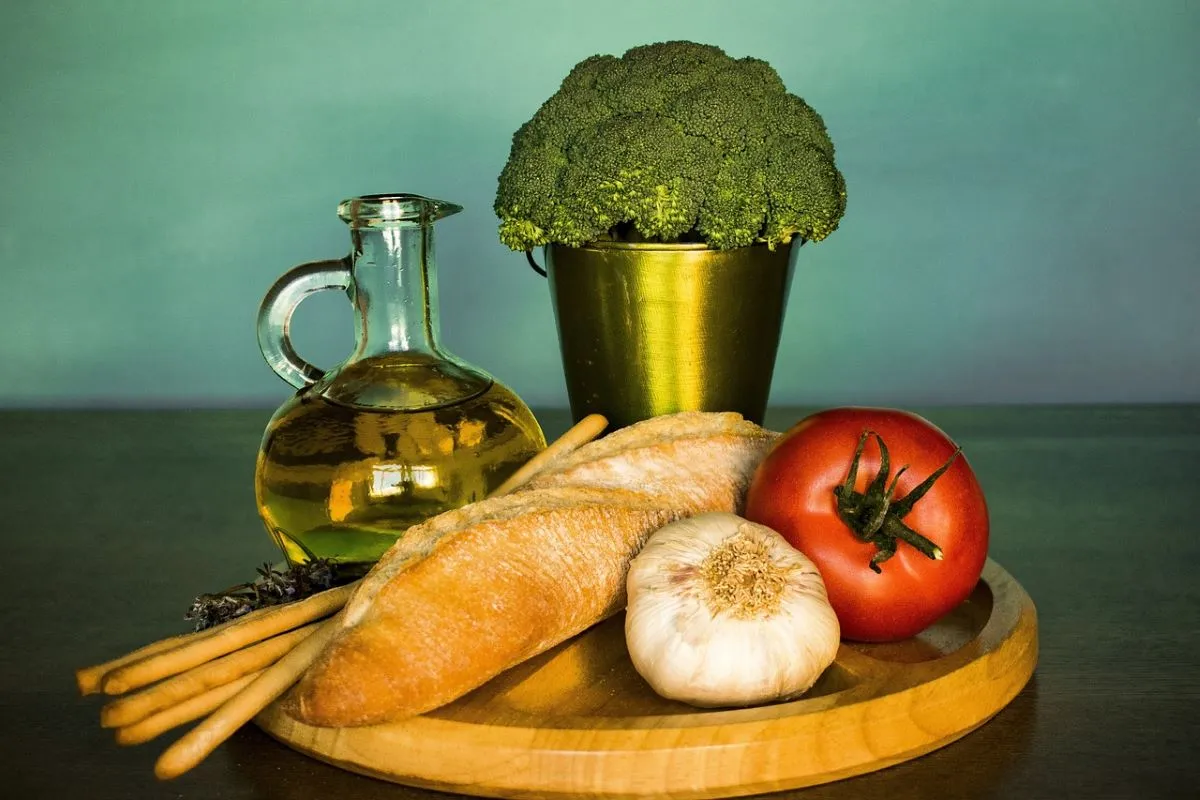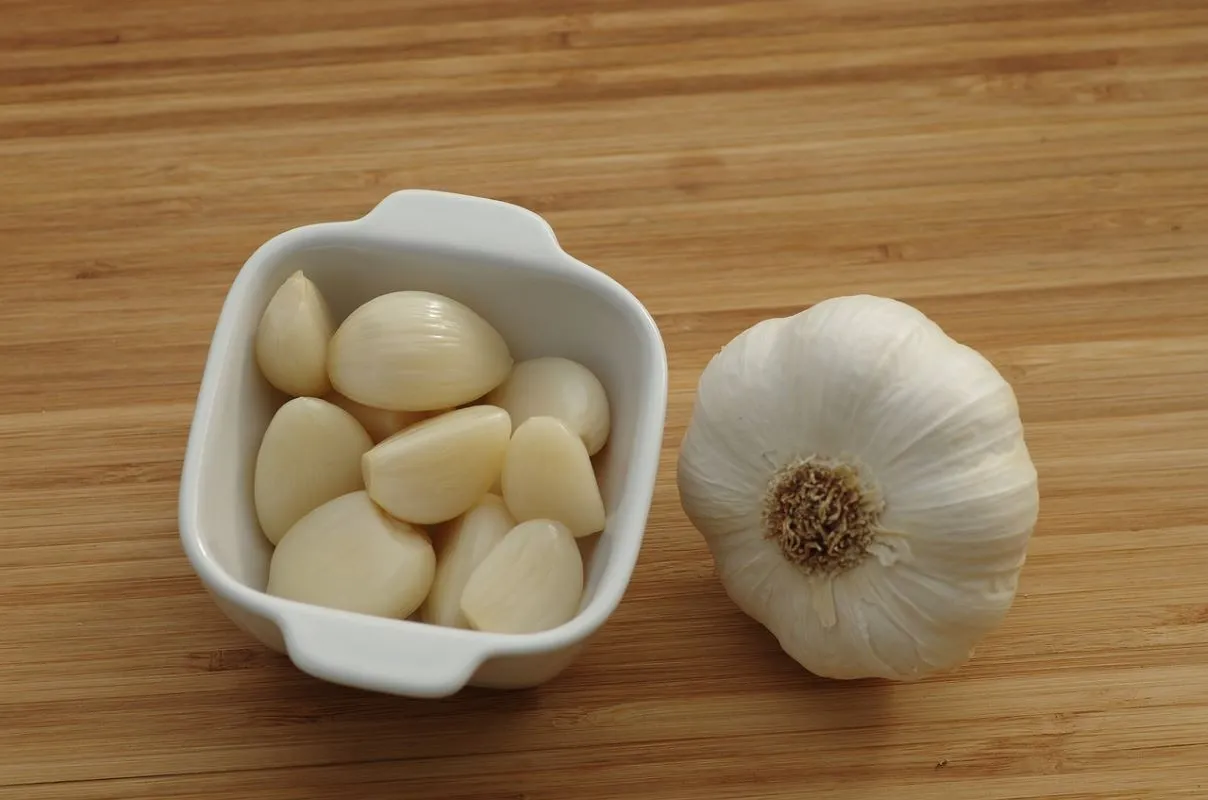Garlic has been important to humans for thousands of years due to its strong smell and unique taste. It is used in cooking, and medicine, and holds cultural significance worldwide. In this exploration, we discuss its long history, cultural meanings, health advantages, culinary uses, folklore, and possible downsides, providing a complete picture of garlic’s diverse role.
History of Garlic
The history of garlic traces back over 5,000 years to ancient civilizations such as Egypt, where it was revered for its medicinal properties and used as a form of currency. Garlic bulbs were found in the tomb of King Tutankhamun, a testament to their significance in ancient Egyptian culture. Its cultivation spread throughout Asia, Europe, and eventually the rest of the world.
Cultural Symbolism
Garlic has different meanings in various cultures. In ancient Greece, athletes ate it to feel strong and last longer during competitions. But in medieval Europe, people thought it could keep away evil spirits, vampires, and witches. In some Asian cultures, it’s seen as a symbol of good luck and wealth.
Health Benefits
Garlic is renowned for its potential health benefits. It is rich in vitamins and minerals such as vitamin C, vitamin B6, manganese, and selenium. Allicin, a sulfur compound found in this, is credited with numerous health-promoting properties, including:
Garlic Benefits
- Cardiovascular Health: It has been shown to help lower blood pressure and cholesterol levels, thereby reducing the risk of heart disease and stroke.
- Antioxidant Properties: It contains antioxidants that help protect cells from damage caused by free radicals, potentially reducing the risk of chronic diseases like cancer and Alzheimer’s.
- Immune Support: Garlic’s antimicrobial and antiviral properties may help boost the immune system and fend off infections, especially during the cold and flu season.
- Anti-Inflammatory Effects: Compounds in garlic have anti-inflammatory properties, which may help alleviate symptoms of inflammatory conditions such as arthritis.
- Improved Circulation: Garlic may help improve blood circulation by dilating blood vessels, potentially reducing the risk of conditions like atherosclerosis and peripheral artery disease.
- Detoxification: It aids in detoxification processes within the body by supporting liver function and promoting the elimination of toxins.
- Improved Digestion: This can help promote healthy digestion by stimulating digestive enzymes and supporting gut health.
- Antibacterial Properties: Garlic has natural antibacterial properties that may help combat bacterial infections and promote wound healing.
- Cancer Prevention: Studies hint at it reducing stomach and colorectal cancer risk, though more research is warranted for confirmation.
While these benefits are promising, it’s important to incorporate garlic into a balanced diet and lifestyle for optimal health outcomes. Consult a healthcare professional before altering your diet or beginning its supplementation, as responses may differ.
Eating garlic at night benefits
Eating garlic at night may offer several potential benefits, although individual responses can vary. Here are some of the potential benefits of consuming garlic before bedtime:
- Improved Sleep Quality: Some people believe consuming garlic before bedtime may help promote better sleep quality. It contains certain compounds, such as allicin, which may have calming and relaxing effects that could contribute to improved sleep.
- Reduced Risk of Heart Disease: Consuming garlic at night may help support heart health by lowering blood pressure and cholesterol levels. These effects can contribute to overall cardiovascular health and reduce the risk of heart disease and stroke.
- Enhanced Immune Function: It is known for its immune-boosting properties due to its antimicrobial and antiviral effects. Eating it at night may help strengthen the immune system and support the body’s ability to fight off infections and illnesses.
- Detoxification: Some people believe consuming garlic at night may support the body’s natural detoxification processes. It can help stimulate liver function, promote the elimination of toxins, and support overall detoxification efforts while the body rests during sleep.
- Potential Weight Management: While more research is needed, some studies suggest that garlic may help support weight management by boosting metabolism and promoting fat loss. Consuming garlic at night could potentially contribute to these effects over time.
Eating garlic before bed might have advantages, but thinking about personal likes and sensitivities is crucial. For some, it can cause stomach issues or bad breath, possibly affecting sleep. Also, garlic supplements might not mix well with certain medications. To be safe, talk to a healthcare provider before making garlic part of your nighttime habits, especially if you have health issues or take medication.

Benefits of garlic sexually
It has been historically associated with various health benefits, including those related to sexual health. Limited scientific evidence links garlic to sexual enhancement, but its general health benefits may indirectly support sexual wellness.
- Improved Blood Circulation: It is known to help improve blood circulation by dilating blood vessels and reducing blood pressure. Enhanced blood flow can benefit sexual function by increasing sensitivity and arousal.
- Cardiovascular Health: Garlic’s heart benefits from supporting overall cardiovascular health, which is crucial for maintaining healthy sexual function.
- Antioxidant Properties: It contains antioxidants that help protect cells from oxidative damage. This can support overall health and vitality, potentially positively impacting sexual wellness.
- Immune Support: Garlic’s antiviral properties bolster the immune system, vital for preventing infections that affect sexual health.
- Stress Reduction: Garlic’s potential stress-reducing properties may indirectly benefit sexual health. Lower stress levels can lead to improved libido and sexual satisfaction.
- Hormonal Balance: Garlic may balance hormones like testosterone, impacting sexual desire and performance, as some proponents suggest. However, more research is needed to confirm this effect.
While it may offer potential benefits for sexual health, it’s essential to remember that individual responses can vary. Additionally, relying solely on garlic for sexual enhancement may not address underlying issues or concerns related to sexual wellness. It’s crucial to maintain a balanced diet, engage in regular physical activity, manage stress effectively, and prioritize open communication with healthcare providers to support overall sexual health and well-being. Consulting with a healthcare professional can provide personalized recommendations tailored to individual needs and concerns.
Medicinal Uses
Throughout history, garlic has been used medicinally for various ailments. Traditional medicine systems, including Ayurveda and Traditional Chinese Medicine (TCM), employ garlic to treat respiratory infections, digestive issues, and skin conditions. Modern research supports many of these traditional uses, though more studies are needed to fully validate their effectiveness.
Folklore and Superstitions
Garlic’s association with folklore and superstitions is as rich as its culinary and medicinal history. In addition to warding off vampires and evil spirits, it was believed to protect against the plague during the Middle Ages. In Slavic cultures, garlic was placed under children’s pillows to guard against nightmares. These beliefs highlight the deep-rooted cultural significance of garlic in human societies.
Culinary Exploration
Its versatility in the kitchen knows no bounds. From garlic-infused oils and vinegar to garlic butter and aioli, culinary enthusiasts have found myriad ways to incorporate its flavor into dishes. Fermented garlic, such as black garlic, offers a unique taste profile with hints of sweetness and umami, perfect for gourmet recipes and culinary experimentation.
While it offers numerous health benefits, it can also cause side effects in some individuals. The most common side effect is garlic breath, caused by sulfur compounds released during digestion. Some people may experience digestive discomfort, heartburn, or allergic reactions to garlic. Additionally, it may interact with certain medications, such as blood thinners, so it’s essential to consult a healthcare professional before consuming large amounts of it or taking its supplements.
Why is garlic good for men?
It offers several potential health benefits for men, making it a valuable addition to their diet. Here are some reasons why garlic is considered beneficial for men’s health:
- Cardiovascular Health: It is known to help promote cardiovascular health by lowering blood pressure and reducing cholesterol levels. High blood pressure and elevated cholesterol are risk factors for heart disease, which is a leading cause of mortality in men. Regular consumption of it may help reduce the risk of heart disease and improve overall heart health.
- Improved Blood Circulation: It contains compounds that help dilate blood vessels and improve blood circulation throughout the body. Enhanced blood flow can benefit men by supporting erectile function and promoting overall sexual health.
- Prostate Health: Some studies suggest that it may have protective effects against prostate cancer, the most common cancer among men. The sulfur compounds in garlic may help inhibit the growth of cancer cells and reduce the risk of prostate cancer development.
- Hormonal Balance: It may help support hormonal balance in men by influencing testosterone levels. Testosterone is a key hormone that plays a crucial role in maintaining muscle mass, bone density, libido, and overall vitality. While more research is needed, some studies suggest that garlic may help regulate testosterone levels and support men’s hormonal health.
- Stress reduction: It contains compounds that may help reduce stress and promote relaxation. Chronic stress harms men’s physical and mental health, raising the risks of heart disease, hypertension, and erectile dysfunction. Consuming garlic may help mitigate the negative effects of stress and promote overall well-being.
Garlic clove
A garlic clove is one of the individual segments that make up a garlic bulb. It is the small, oval-shaped section enclosed within the papery skin of the bulb. Garlic cloves are typically used in cooking and have a pungent aroma and flavor. They can be minced, chopped, crushed, or sliced to add flavor to various dishes, such as soups, stews, sauces, marinades, and stir-fries. Garlic cloves contain sulfur compounds, including allicin, which are responsible for their characteristic taste and smell, as well as many of their potential health benefits. In culinary applications, garlic cloves are often sautéed in oil or butter to release their flavor and aroma before being added to dishes. Its cloves are versatile ingredients used in cuisines around the world and are valued for their distinctive taste and culinary contributions.

Conclusion
Garlic has been important in medicine since ancient times and is still widely used in kitchens today. It’s loved around the world for its long history, health benefits, and ability to make food taste better. Some people might not like its strong smell and taste, but its good effects on health and delicious flavor keep making it popular. Let’s celebrate garlic for its impact on our cooking and our lives.



